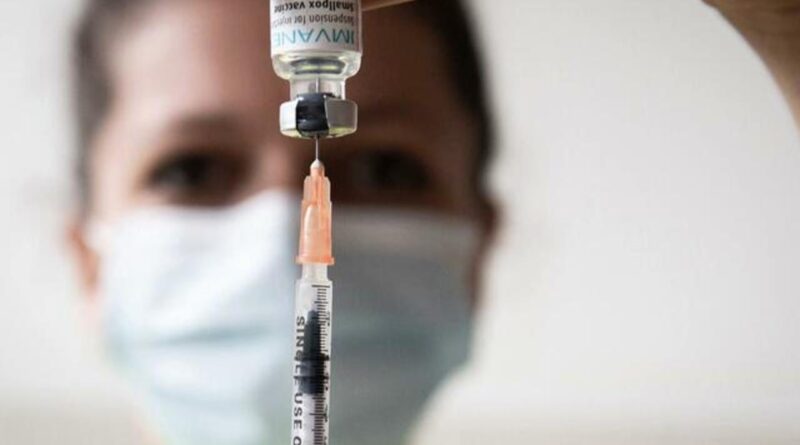Fears as monkeypox resurges in Africa
Two years after a global outbreak, there are fears that a new strain of mpox, previously known as monkeypox, discovered in the Democratic Republic of the Congo and now in several neighboring countries, will spread much further.
The mpox strain, known as the Clade Ib subclade, which has been spreading in the Democratic Republic of Congo (DRC) since September, is more deadly and transmissible than previous variants.
The World Health Organization (WHO) announced on Sunday that it was considering assembling an expert committee to advise on whether to declare a worldwide emergency, as it had done during the global mpox outbreak in 2022.
The Clade Ib strain causes skin rashes all over the body, as opposed to other strains, which often just affect the mouth, face, and genitals.
As of August 3, the African Union health office, Africa CDC, reported 14,479 confirmed and suspected cases of the strain and 455 deaths in the Democratic Republic of the Congo, reflecting a fatality rate of approximately 3%.
However, experts in the vast Central African nation report that the strain can kill up to 10% of children.
The Congolese government admitted last month to a “exponential increase” in cases.The disease has been detected in the displacement camps near Goma in North Kivu, where the tremendous population density renders the situation critical,” said Louis Albert Massing, medical coordinator for Doctors Without Borders in the Democratic Republic of Congo.
The chances of explosion are significant given the massive population movements” in the conflict-ridden region, which borders many countries, he warned.
Rosamund Lewis, the WHO’s expert head for mpox, told AFP that the Clade Ib strain had already crossed national boundaries, with cases reported in Uganda, Burundi, Rwanda, and Kenya in the last two weeks.
– ‘Raging’.
Authorities in the four nations confirmed mpox cases, with Burundi reporting 127 cases, but could not name the strain.
The East African Community (EAC), which has eight members, has encouraged governments to educate residents on how to protect themselves and prevent the disease from spreading.
According to Lewis of the WHO, this is the first time the four nations to the east of the Democratic Republic of the Congo have reported mpox cases.
“Rwanda, Burundi, Uganda are countries that don’t have this disease in an endemic way… that means it’s an extension of the outbreak which is raging in the DRC and in Central Africa generally,” she informed us.
The Africa CDC has also reported 35 suspected and confirmed cases, including two deaths, in Cameroon; 146 cases, including one death, in Congo Brazzaville; 227 cases in the Central African Republic; 24 in Nigeria; five in Liberia; and four in Ghana.
In West Africa, Ivory Coast recently reported six confirmed non-fatal cases, five of which occurred in Abidjan, the economic hub, without defining the strain.
Detection capacity –
Mpox was originally found in humans in 1970 in the Democratic Republic of the Congo, which was then known as Zaire.
It has now been limited to a few West and Central African countries. Humans primarily contract it from diseased animals, such as when eating bushmeat.
In May 2022, mpox infections increased worldwide, primarily among gay and bisexual men.
That increase was caused by a new subtype, Clade II, which took over from Clade I.
Around 140 persons died out of around 90,000 cases in 111 countries.
The outbreak is “still raging,” Lewis said, particularly in South Africa, where there have been 24 cases, three of which were deadly, but she added that it is “controlled” and spreads less.
Mpox remains a worldwide health danger, according to WHO chief Tedros Adhanom Ghebreyesus, who warned in early July.
Countries can now discover cases, Lewis said, citing a surveillance system, laboratories, and communication with impacted areas.
It’s difficult to tell if there has been a “substantial rise” in cases or if “it’s just a matter of increased awareness,” said Maria Van Kerkhove, the WHO’s epidemic and pandemic preparedness and prevention head, who confirmed concerns about the Clade Ib strain.
“There are some licensed vaccines that can be used for mpox,” she explained.
Negotiations between the WHO and concerned nations are underway to allow the use of one, Lewis stated.
AFP



